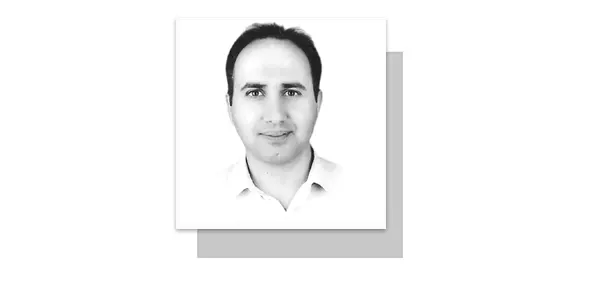HUMAN civilization has thrived on the foundation of collective strength.
From ancient tribes to modern nations, progress has always been driven by unity, shared purpose and mutual support.
Community development is not just an economic necessity, it is the essence of human advancement.
True progress is not measured by infrastructure alone but by the empowerment of individuals who form the heart of society.
A prosperous community uplifts its people, fosters inclusivity and paves the way for sustainable growth, ensuring that no one is left behind.
In Pakistan, where economic disparities, social inequalities and governance challenges persist, community development is not just essential, it is a moral and national duty.
Time and again, the nation’s resilience has been tested, yet its communities have consistently risen to the challenge.
From vibrant urban hubs to remote rural villages, the spirit of collaboration and self-reliance has fuelled countless initiatives to uplift the underserved.
Government and non-governmental organizations have played a crucial role in bridging gaps and restoring hope where it is needed most.
Among the key institutions leading this mission is Pakistan Bait-ul-Mal, a beacon of social welfare.
Its Child Labour Schools rescue children from labour, offering them education and a chance to break free from poverty.
Women Empowerment Centres equip thousands with skills and resources, nurturing independence and dignity.
Medical and educational assistance programs ensure healthcare and learning opportunities reach society’s most vulnerable.
During Ramazan, 2.5 million Iftaar dinners extended much-needed support, reinforced the values of compassion and community solidarity.
Community development in Pakistan extends beyond institutional efforts; it is woven into the fabric of everyday life.
The traditional concept of biradari (brotherhood) remains a powerful force, fostering mutual support in times of need.
Informal networks, neighbourhood charities, community-led initiatives and local economic cooperation, continue to complement formal development programs.
However, persistent challenges such as poverty, unemployment and political instability obstruct sustainable progress.
Overcoming these hurdles requires a holistic, multi-faceted approach that actively involves all segments of society.
Community development is the foundation of a thriving society and economic empowerment is its cornerstone.
Pakistan’s progress depends on the strength of its small and medium enterprises, agricultural innovations and social entrepreneurship.
Microfinance and self-help initiatives have enabled individuals to break free from financial dependency, creating sustainable livelihoods.
Skill development, vocational training and market integration programs further ensure that people become active contributors to economic growth rather than passive recipients of aid.
Corporate Social Responsibility (CSR) initiatives by private enterprises also play a vital role, aligning business success with social upliftment.
Education remains the most powerful tool for long-term transformation.
It is not a privilege but a fundamental right that shapes a nation’s future.
Despite ongoing efforts, literacy gaps persist, particularly in rural and marginalized communities.
Grassroots initiatives by Pakistan Bait-ul-Mal and have made significant strides in bridging this divide, yet more remains to be done.
Expanding digital learning, community-led education programs and public-private partnerships can accelerate progress, ensuring every child has access to quality education and a brighter future.
Healthcare is another pillar of sustainable development.
Affordable medical services, especially in remote regions, remain a challenge.
While government initiatives and philanthropic institutions have improved accessibility, the demand still surpasses available resources.
Strengthening community-based health programs, deploying mobile clinics and increasing awareness campaigns can enhance healthcare infrastructure and ensure preventive care reaches the masses.
Pakistan’s resilience during crises, natural disasters, pandemics and health emergencies, has highlighted the power of collective action, reinforcing the need for long-term, community-embedded healthcare solutions.
Beyond economic and social programs, the heart of a strong society lies in social cohesion and inclusivity.
Pakistan’s diverse cultural and religious landscape presents a powerful opportunity for unity, yet societal divisions often hinder progress.
Community development must foster a sense of belonging, tolerance and shared purpose.
Initiatives promoting interfaith harmony, youth engagement and civic responsibility can help bridge divides, nurturing an environment where development is inclusive and ethical.
Effective governance and institutional strength are critical for sustainable progress.
Local governance ensures resources are allocated efficiently, corruption is minimized and policies serve the people.
Strengthening local government structures, encouraging participatory decision-making and ensuring accountability can empower communities to take charge of their development.
Decentralization allows for region-specific solutions, catering to the diverse needs of Pakistan’s population.
Pakistan’s progress depends on action, not just intention.
True development lies in empowering people, strengthening institutions and ensuring inclusivity.
A nation thrives when its citizens drive change and education, healthcare, economic opportunities and accountable governance must be at the heart of this transformation.
Challenges persist, but so does the potential for a better future.
Investing in people, bridging social divides and creating sustainable opportunities will define success.
The key is collaboration, responsibility and a shared vision for progress.
Pakistan’s dream of a just, prosperous and self-reliant society is within reach.
With determination and collective effort, we can turn aspirations into reality, ensuring no one is left behind and every individual has the opportunity to thrive.
—The writer is PhD in Political Science, and visiting faculty at QAU Islamabad. (zafarkhansafdar@yahoo.com)










